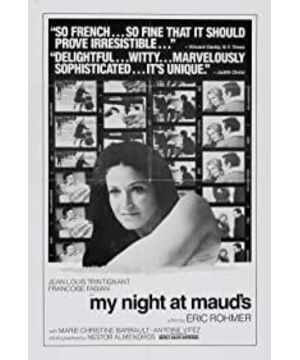"I choose wine, it doesn't mean I don't choose God. That's not what it means to choose." There is no better expression of Lewis' moral principle of moderation than this sentence. This principle prevented him from going to extremes like Vidal and Pascal.
Pascal was tortured throughout his life by the principles of asceticism and asceticism. How can one choose both wine and God? So Lewis is "a typical hypocrite". However, he failed to find God in the end. He went on the road of non-phenomenal abstract science to find God. He failed and exhausted his life. He complained, "The whole physics is less than an hour of pain." . He finally shouted: I want wine! So, he was reincarnated and renamed Vidal.
I always feel that philosophy has gradually embarked on an empty path, because it has no foundation, but it is endlessly playing with concepts, and in short, it is almost derailed from life. Today's philosophers like to label themselves, or tear off the label, but they are inseparable from the essence of the label. Vidal is the epitome of this type - self-righteously fiddling with concepts, and all these empty concepts are just props for his pursuit of sensual stimulation, so he must protect his emptiness with women, filling it in vain himself; at the same time, he also uses women to adorn himself, in order to gain the envy of others, and at the same time to please himself. He cannot stand failure, especially being abandoned, so he prepares immoral reasons for the other party to protect himself. He is even afraid of failure in the future. He hates snow, because beautiful things give birth to illusions, and disillusionment is a failure. Vidal, the so-called philosopher, like the secular people, is deeply immersed in all the illusory values of this secular world. They have lost the ability to renounce, and the loss of the ability to renounce is the greatest stupidity of our generation, "Cai Yunyi It is normal to have broken glass, but we regard the manifestation of a truth as a kind of misfortune, so we can only be unhappy.
If a person cannot leave, then he can at least reflect on such a life. This is the value of Françoise. Françoise's moral sense of self-blame and unease is the guarantee of a stable marriage. (Liberals and egoists must not laugh at the hypocrisy of such a sense of morality. Stupid people can always find beautiful and clever excuses for their stupidity, and they are more powerful than others, and more powerful than others.) Therefore, when Louis saw Françoise in the church in confession and prayer, he decided that it would be his wife. I'm not lecturing on morality, but one cannot be without morality, and the so-called morality is not to take self (desire) too seriously. In fact, I'm talking very utilitarian about the virtues of morality.
Mude's misfortune is that she is too self-righteous. She thought Louis was an idiot who didn't understand her needs, but she was attracted to the idiot. In my opinion, Luis's self-control is still smart (although he is tempted), because otherwise he will be the next Vidal, "that poor boy". She had to leave because someone made her a "poor little girl" once.
However, Luis has also been abandoned, but he has a good mentality, so people with a good mentality will be more fortunate. He understands that in fact, there is no such thing as abandonment and abandonment, because people simply cannot overcome "environment" (this "environment" can be interpreted as "potential" or "predestined"), and you cannot overcome "potential", or predestined That's it. "It's good to have love, and it's good to have no love." This is fate. But ordinary people are too devoted and pay too much attention to right and wrong, this is the performance of stupidity, because he does not respect objective laws.
"I choose wine, it doesn't mean I don't choose God. That's not what it means to choose." With wine, I drink a little, but I can't get drunk; without wine, it's good to be sober; God doesn't promise you never to suffer, to suffer It's like insomnia, can't fall asleep and read a book; God will never let you suffer all the time, who binds you? No one is bound.
A movie, a book, you finish it after you finish it, and if you understand (or misunderstand) it, then you understand (or misunderstand) it, so why write it out? I don't want to be a saint.
View more about My Night at Maud's reviews










